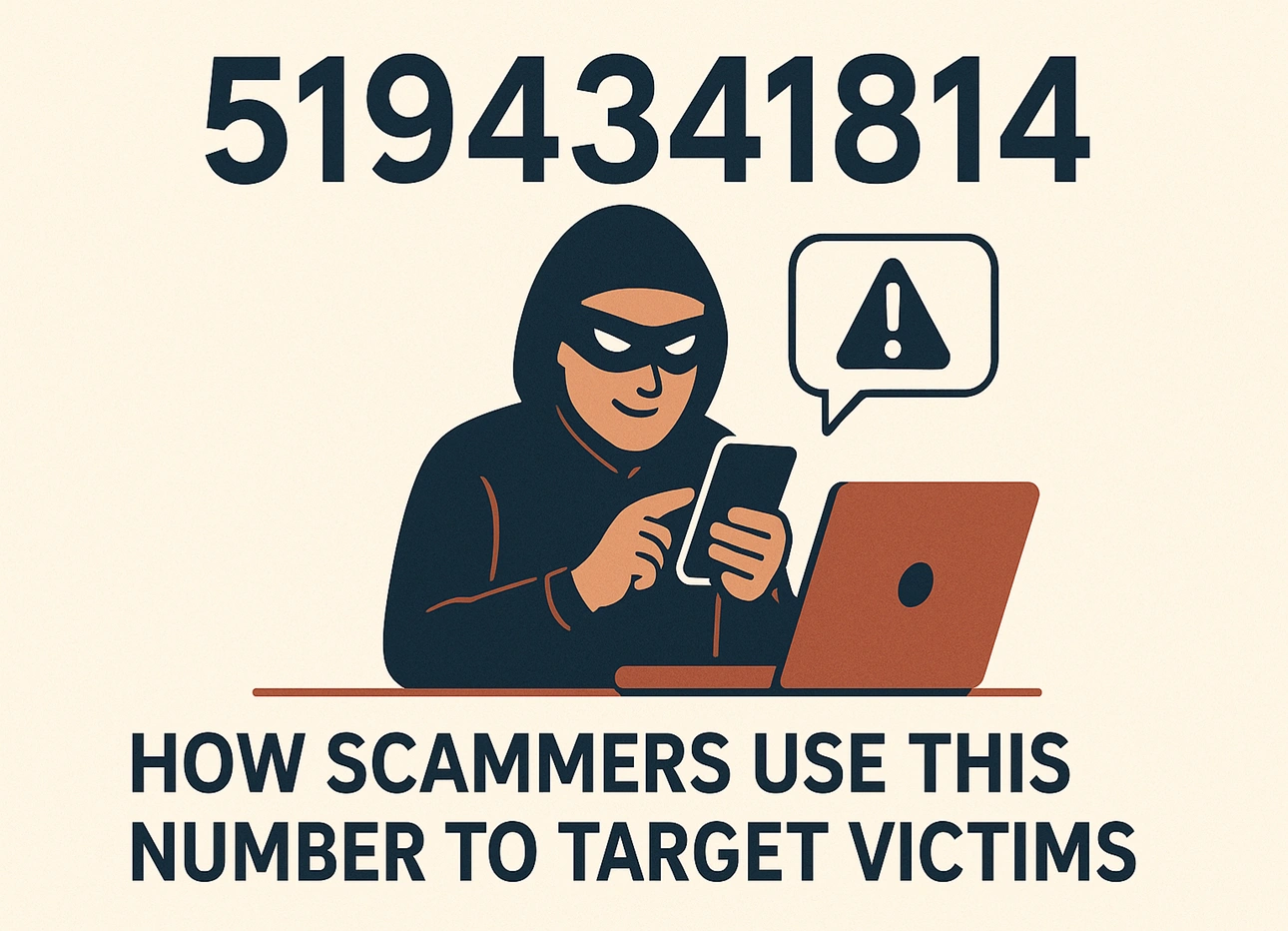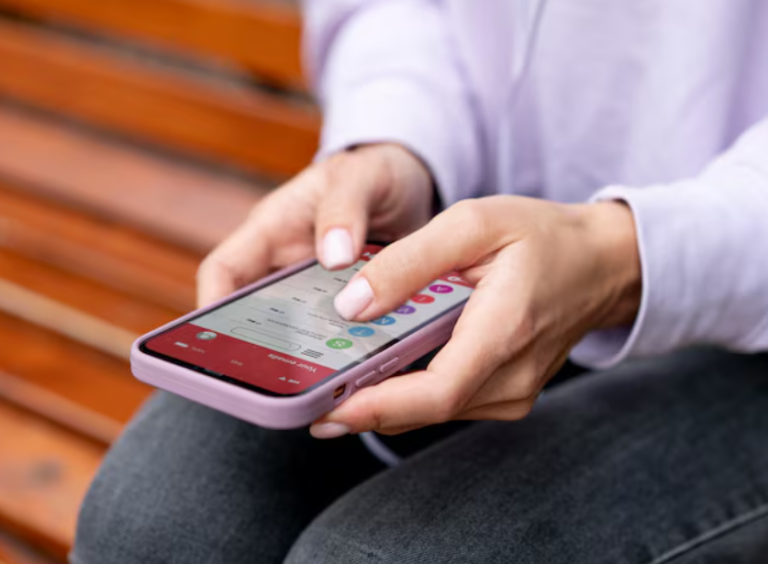5194341814: How Scammers Use This Number to Target Victims
Scammers are becoming more cunning, using phone numbers like 5194341814 to trick people into giving away personal information or money. If you’ve received a call from this number, you might be wondering what’s going on and how to protect yourself. This article explains everything you need to know about 5194341814, how scammers operate, and practical steps to stay safe. Written in simple, easy-to-read language, this guide is designed to help everyone, understand the dangers of phone scams and how to avoid them.
What Is 5194341814?
The phone number 5194341814 originates from the 519 area code, which covers parts of southwestern Ontario, Canada, including cities like London and Windsor. While this number might look legitimate, scammers often use it to contact potential victims. They might pretend to be someone you trust, like a bank employee, a government official, or even a family member, to gain your trust and steal your money or personal details.
Scammers use tactics like caller ID spoofing, where they fake the number that appears on your phone to make it look like a local or trusted call. This is why a number like 5194341814 might seem familiar, even if it’s being used for fraud. In the world of scams, phone numbers are tools for deception, and understanding how they work can help you stay one step ahead.
Read More: How to Block 5194349021 and Stop Unwanted Calls
How Scammers Use Phone Numbers Like 5194341814
Scammers have many tricks up their sleeves, and phone numbers like 5194341814 are part of their toolkit. Here’s how they typically operate:
1. Impersonating Trusted Organizations
Scammers might call from 5194341814 claiming to be from a bank, the IRS, or even a charity. They often say there’s an urgent problem, like a locked bank account or unpaid taxes, to scare you into acting quickly. For example, they might say, “Your account is frozen. Call us back at 5194341814 to fix it.” This creates panic, making you more likely to share sensitive information like your bank account number or Social Security number.
2. One-Ring Scams
A common scam is the one-ring scam, where your phone rings once from 5194341814 and then stops. Curious, you might call back, only to be charged high international or premium rates. These calls often come from numbers that look local but are actually routed through international systems, costing you money the moment you dial back.
3. Delivery Scams
Another popular tactic involves fake delivery notifications. You might get a text or voicemail from 5194341814 saying, “Your package is on hold. Call us to resolve the issue.” When you call, scammers might ask for personal details or direct you to a fake website that steals your information or infects your device with malware.
4. Emotional Manipulation
Scammers are experts at playing with your emotions. They might call from 5194341814 pretending to be a family member in trouble, saying something like, “I’ve been arrested and need money for bail.” By creating fear or urgency, they pressure you into sending money without thinking it through.
5. Spoofing and Phishing
Scammers use 5194341814 to spoof caller IDs, making it look like the call is from a trusted source. They might also send text messages (known as smishing) with links that trick you into entering personal information on fake websites. These tactics are designed to steal your identity or money.
Why Scammers Choose Numbers Like 5194341814
Scammers pick numbers like 5194341814 for a few reasons:
-
Local Area Code: The 519 area code looks familiar to people in Ontario, making them more likely to answer or call back.
-
Easy to Spoof: Technology allows scammers to fake any number, including 5194341814, to appear trustworthy.
-
Disposable Numbers: Scammers often use temporary or virtual numbers, which they can change frequently to avoid being caught.
-
High Success Rate: People are more likely to trust a number that looks local, increasing the chances of falling for the scam.
The Impact of Phone Scams
Phone scams are a massive problem. In 2024, over 56 million Americans were affected by scam calls, losing more than $25 billion. Scams using numbers like 5194341814 can lead to:
-
Financial Loss: Victims might send money to scammers or pay hefty fees for calling back premium numbers.
-
Identity Theft: Sharing personal details can lead to scammers opening accounts or taking loans in your name.
-
Emotional Distress: Being tricked by scammers can cause stress, fear, and embarrassment.
|
Scam Type |
How It Works |
Red Flags to Watch For |
|---|---|---|
|
Impersonation Scam |
Scammer pretends to be from a bank, government, or company to steal info or money |
Urgent demands, requests for personal info, unfamiliar number |
|
One-Ring Scam |
Phone rings once, tempting you to call back and incur charges |
Single ring, unknown number, no voicemail |
|
Delivery Scam |
Fake message about a missed delivery, asking you to call or click a link |
Unsolicited texts, vague details, suspicious links |
|
Emotional Manipulation |
Scammer pretends to be a loved one in trouble to get money |
Urgent pleas, refusal to verify identity, emotional pressure |
|
Phishing/Smishing |
Texts or calls with links to fake websites that steal your info |
Links in texts, requests for passwords or bank details |
How to Protect Yourself from Scams Using 5194341814
Staying safe from scams involving numbers like 5194341814 is easier than you think. Here are some practical tips:
1. Don’t Answer Unknown Numbers
If you don’t recognize 5194341814 or any other number, let it go to voicemail. Legitimate callers will leave a message, but scammers rarely do. If you do answer and it feels suspicious, hang up immediately.
2. Never Call Back One-Ring Calls
If 5194341814 rings once and stops, don’t call back. This is a common trick to rack up charges or connect you to a scammer. Instead, search the number online to see if others have reported it as a scam.
3. Use Call-Blocking Features
Most smartphones have settings to block unknown or suspicious numbers. On iPhones, go to Settings > Phone > Silence Unknown Callers. On Android, go to Phone > Settings > Block Numbers. You can also use apps like Truecaller to identify and block scam numbers.
4. Verify the Caller’s Identity
If someone claims to be from a bank or government agency, hang up and call the official number listed on their website. Never use the number provided by the caller, like 5194341814, as it could be fake.
5. Don’t Share Personal Information
Never give out your Social Security number, bank details, or passwords over the phone, especially to unsolicited callers. Legitimate organizations won’t ask for this information out of the blue.
6. Report Scams
If you suspect 5194341814 is being used for scams, report it to:
-
Federal Trade Commission (FTC) at ReportFraud.ftc.gov
-
Federal Communications Commission (FCC) at consumercomplaints.fcc.gov
-
Your local police if you’ve lost money or personal information
7. Join the Do Not Call Registry
Register your number at www.donotcall.gov to reduce telemarketing calls. While this won’t stop scammers, it can cut down on unwanted calls overall.
What to Do If You’ve Been Scammed
If you’ve fallen victim to a scam involving 5194341814, act quickly:
-
Contact Your Bank: If you shared financial details, call your bank to freeze your accounts or issue new cards.
-
Change Passwords: Update passwords for any online accounts that might be compromised.
-
Place a Fraud Alert: Contact Experian, Equifax, or TransUnion to place a fraud alert on your credit reports.
-
Report the Scam: File a complaint with the FTC, FCC, or local police to help stop the scammers.
-
Monitor Your Accounts: Check your bank and credit card statements for suspicious activity.
Why Scams Are Hard to Stop
Scammers are tough to catch because they use technology to hide their tracks. They can spoof numbers like 5194341814, operate from different countries, and change numbers frequently. However, law enforcement agencies like the FBI and FTC are working to track and shut down scam operations. By reporting suspicious calls, you help them build a case against these criminals.
How Technology Is Fighting Back
Good news! Technology is also helping fight scams. Phone carriers use tools like STIR/SHAKEN to verify caller IDs and reduce spoofing. Apps like Truecaller and Nomorobo can flag or block scam calls. Some phones even label suspicious calls as “Scam Likely,” giving you a heads-up before you answer.
Conclusion
Phone scams using numbers like 5194341814 are a growing threat, but you don’t have to be a victim. By understanding how scammers operate, recognizing red flags, and taking simple steps like not answering unknown calls, you can protect yourself and your family. Stay curious but cautious—search numbers online, verify callers, and report suspicious activity. With a little knowledge and vigilance, you can outsmart scammers and keep your personal information safe.
FAQ Section
1. What should I do if I get a call from 5194341814?
Don’t answer if you don’t recognize the number. If you do answer and it seems suspicious, hang up. Never share personal information or call back. Search the number online to check if it’s been reported as a scam.
2. How can I tell if a call from 5194341814 is a scam?
Look for red flags like urgent demands, requests for personal info, or vague messages about deliveries or prizes. Legitimate callers won’t pressure you or ask for sensitive details without verification.
3. Can I block 5194341814 on my phone?
Yes! On iPhones, go to Settings > Phone > Blocked Contacts and add the number. On Android, go to Phone > Settings > Block Numbers. You can also use apps like Truecaller for automatic blocking.
4. What happens if I call back 5194341814?
Calling back could connect you to a scammer who might charge you high fees or try to steal your personal information. It’s best to avoid calling back unknown numbers.
5. How do I report a scam call from 5194341814?
Report it to the FTC at ReportFraud.ftc.gov, the FCC at consumercomplaints.fcc.gov, or your local police. Provide details like the number, time of call, and what the caller said.
Read More: Protecting Your Demat Account From 18662076227 Calls






